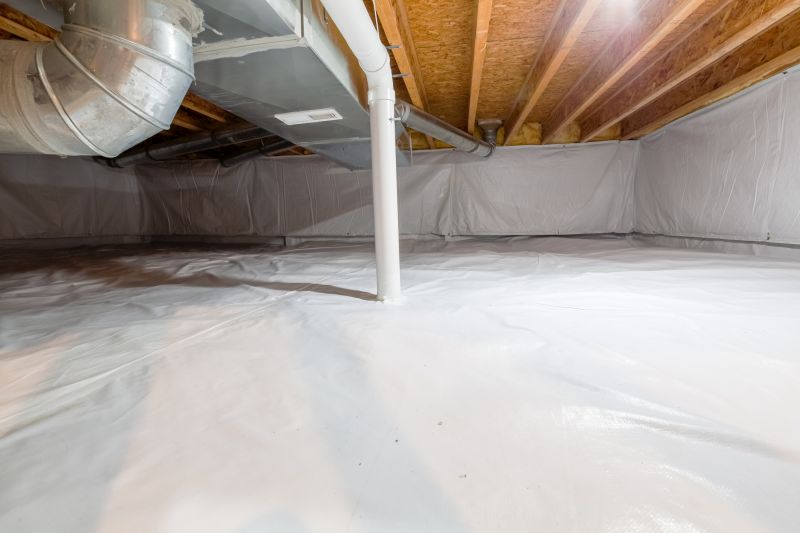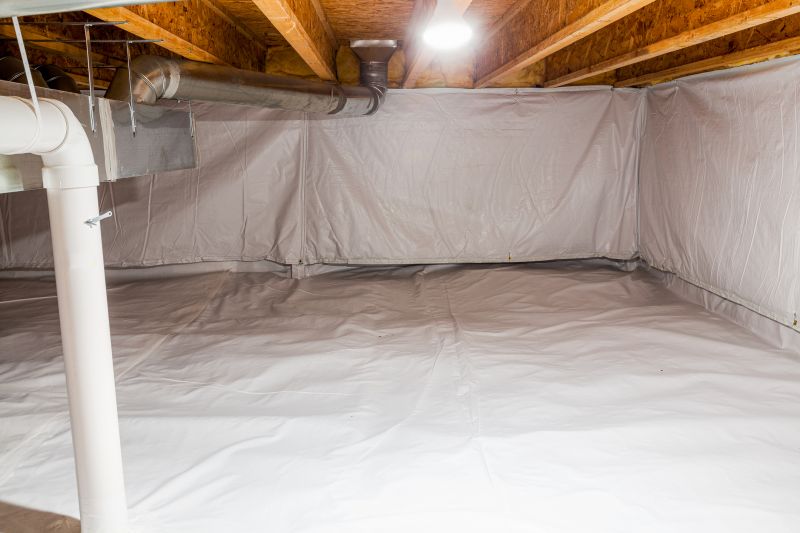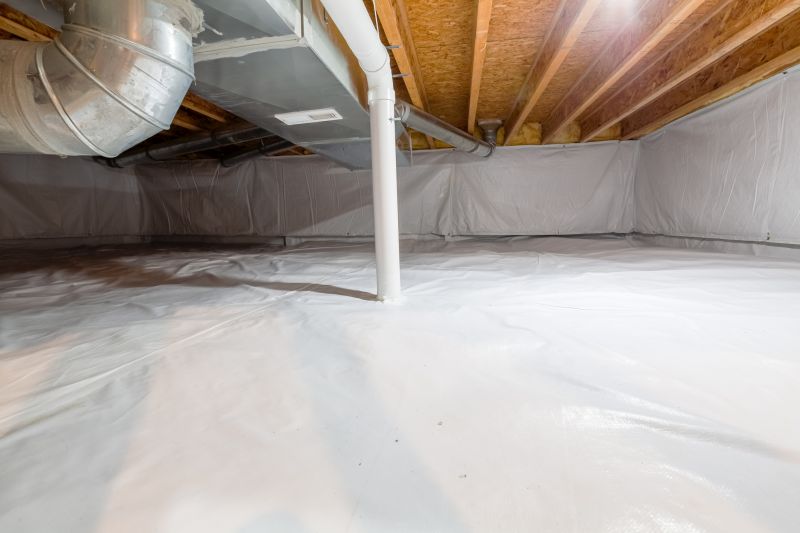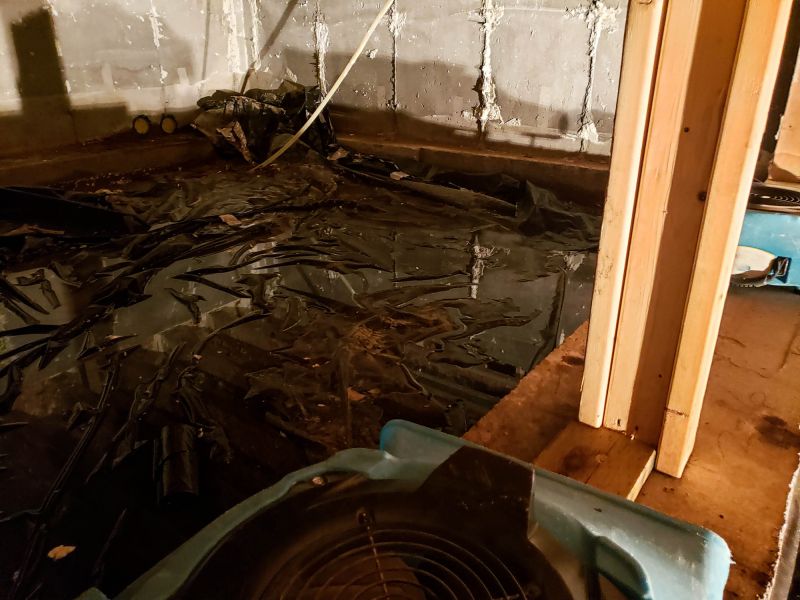Effective Crawlspace Sealing to Enhance Air Quality
Crawlspace encapsulation is a comprehensive process designed to improve indoor air quality, prevent moisture buildup, and protect the structural integrity of a building. In Xenia, Ohio, where humidity and seasonal changes can impact crawlspaces, encapsulation offers a vital solution to maintain a healthy and safe environment.
Encapsulation prevents excess moisture from entering the crawlspace, reducing the risk of mold growth and wood rot, which can compromise the building's foundation.
Sealing the crawlspace helps regulate indoor temperatures, leading to lower heating and cooling costs by preventing air leaks and thermal loss.
Reducing humidity and mold growth minimizes allergens and airborne pollutants, contributing to a healthier indoor environment.
Encapsulation shields the foundation and support beams from moisture-related damage, extending the lifespan of the property.

A fully encapsulated crawlspace with durable vapor barrier and insulation installed, providing a clean and dry environment.

Interior view showcasing sealed walls and flooring, designed to prevent moisture infiltration.

Insulation and vapor barrier installed to optimize energy efficiency and moisture control.

Complete encapsulation system with sealed vents and dehumidification equipment in place.
Failing to encapsulate a crawlspace can lead to significant issues. Uncontrolled moisture can cause mold growth, which may contribute to respiratory problems and allergies. Structural damage from wood rot and pest infestations can also occur, leading to costly repairs. Statistics indicate that homes with unsealed crawlspaces often experience higher energy bills due to air leaks and poor insulation. Encapsulation offers a proactive approach to mitigate these risks, enhancing the durability and safety of a property.
| Benefits of Crawlspace Encapsulation | Risks of Not Encapsulating |
|---|---|
| Reduces moisture and mold growth | Increased mold and mildew presence |
| Improves indoor air quality | Higher allergy and respiratory issues |
| Enhances energy efficiency | Higher heating and cooling costs |
| Protects structural components | Foundation deterioration and wood rot |
| Prevents pest infestations | Pest entry and damage |
| Extends building lifespan | Premature structural failure |
| Maintains consistent indoor temperatures | Temperature fluctuations and drafts |


